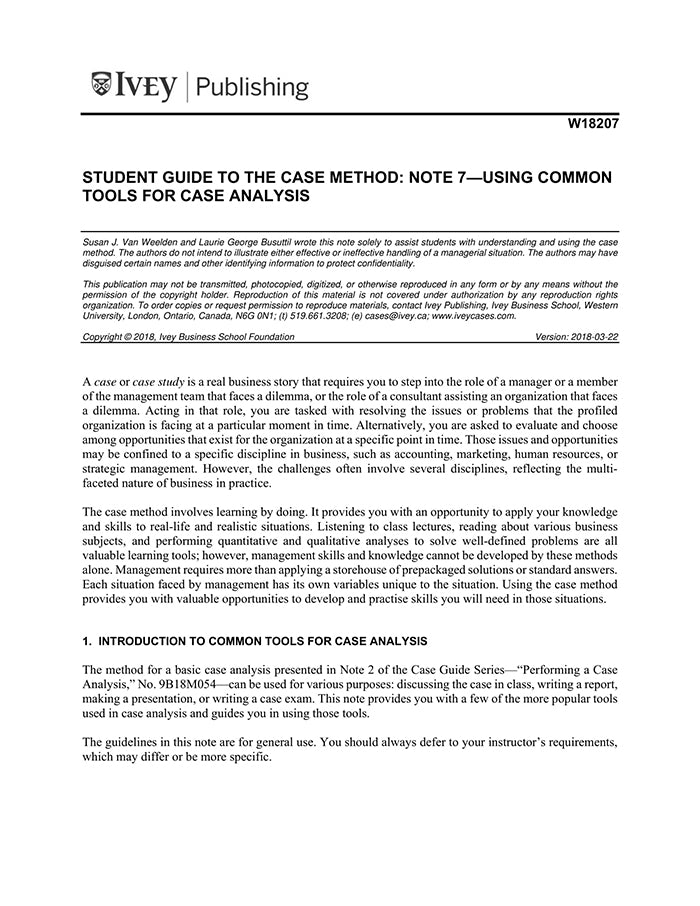Student Guide to the Case Method: Note 7 - Using Common Tools for Case Analysis
受取状況を読み込めませんでした
Case analysis is an effective tool for teaching, learning, and most importantly, practising the art and science of management. The case method immerses students in real-life situations, allowing them to develop their business skills by analyzing realistic situations, applying business theories and tools, and making substantiated recommendations for a course of action. However, working with cases is a pedagogical approach that is unfamiliar to most new business students and often inadequately understood by advanced students. The Case Guide Series introduces students to the case method and, in discrete notes, walks them through the tasks that are typically involved in case assignments: analyzing a case, discussing cases in class, writing case reports and giving presentations (individually and in groups), and writing case exams. A final note introduces students to the most common business tools used for case analysis. This field-tested series is best used as a complete package to orient students to the case method, but each note also stands on its own and can be used to supplement other course materials. Using Common Tools for Case Analysis: Case analysis can use any of a number of business tools and theories, but some tools are relevant to and used in many situations. Note 7 of the Case Guide Series introduces students to the most common tools used for financial analysis, assessing profitability and market potential, analyzing strategy and the competitive environment, and assessing stakeholder and performance indicators. Several quick examples demonstrate how the tools can be used. Susan J. Van Weelden and Laurie George Busuttil are affiliated with Redeemer University College.
【書誌情報】
ページ数:18ページ
サイズ:A4
商品番号:HBSP-W18207
発行日:2018/3/22
登録日:2018/6/27


